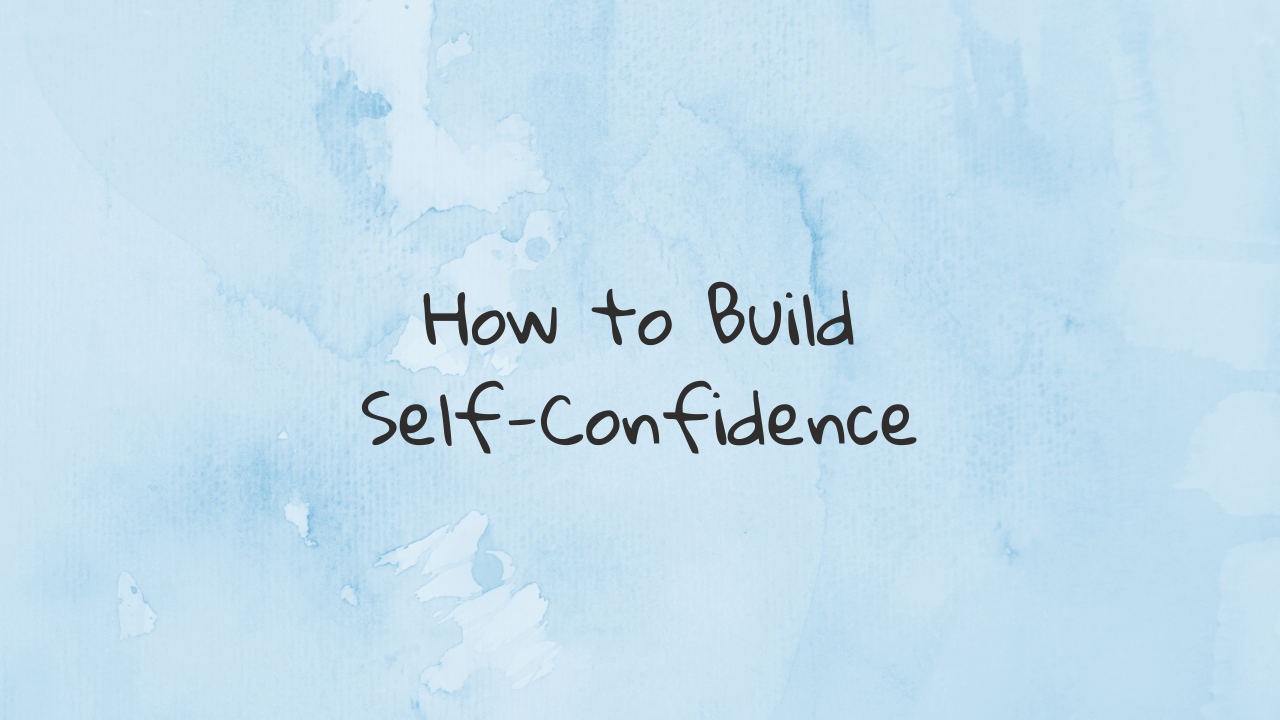
Start feeling better today!
Connect with your therapist today and take control of your life like our 850.000 happy clients.
Get StartedWhy Do I Have a Low-Confidence? How to Build Self-Confidence
Do you ever need to escape criticism, failure, or even the struggle to succeed? Do your close friends, family, or other people's approval matter to you all the time? Do you ever have moments when you doubt your abilities and knowledge, despite your efforts?
What is Self-Confidence?
Although everyone commonly uses the phrase low self-confidence, most people are unsure of what exactly is meant by the term self-confidence. In order to overcome self-confidence issues and find solutions to boost self-confidence, it is significant to understand what self-confidence is.
Self-confidence is one of the ideas that make up personality, according to one scientist1. It is a subjective phenomenon that results from one's judgment of oneself. Self-confidence was described as having the belief that one would successfully accomplish a particular activity rather than being a general quality
by another researcher2.
Psychologists used the following example to illustrate this definition: a person may have high self-confidence while participating in a particular sport but low self-confidence in general. According to renowned Canadian psychologist Bandura, one's assessment of feeling important is what constitutes self-confidence3. The psychological requirement for joyful, satisfying, meaningful, loving, and balanced times is self-confidence4.
Self-awareness, self-assurance, and peace with one's own sense of right and wrong are all components of self-confidence. Self-confidence entails making decisions on your own, free from the influence of others, believing in your ability to succeed, and accepting failures without putting their whole weight on your shoulders or making it a reflection of your character. It's about establishing ourselves as a whole and not allowing all of our accomplishments or failures to define us. Understanding oneself is the first step in creating and growing self-confidence.
What is Low Self-Confidence?
Individuals that struggle with acting with confidence share a few traits in common. These people lack self-confidence and a sense of competence. They frequently exhibit more significant anxiety than others and ponder, "Why am I insecure?" By judging themselves too harshly, they risk raising their anxiety even further.
Negative thoughts about oneself are essentially the root cause of low self-confidence. Even though these people frequently recognize that they assess themselves excessively harshly, they persist in doing so. Children and teenagers can also struggle with a lack of self-confidence and adults.
People with low self-confidence frequently have pessimistic perspectives about themselves, the world, and their future. Individuals with low self-confidence believe they are unworthy and do not make any efforts to succeed in life significantly because they already have a firm conviction that they will fail. They usually have a hard time saying, I am good at this job.
but they always say, I can't handle this job.
.
Researchers found that people who lack self-confidence need other people's acceptance and praise in order to feel successful, but they also fear failure, shun criticism, and avoid conflict5.

Individuals with low self-confidence also tend to be perfectionists, be touchy and fragile, make other people's opinions the focus of their own lives, and avoid accepting responsibility because they find it difficult to believe in themselves. They constantly compare themselves to others, are dissatisfied with anything, find it difficult to make friends, and are socially uncomfortable6.
People with self-confidence problems frequently steer clear of such activities since lacking self-confidence makes it impossible for them to push both themselves and others. They frequently decide not to try because they are so certain they cannot do anything.
So why do individuals constantly criticize themselves or think poorly of themselves?
Why do Some People Have Low Self-Confidence?
First, self-confidence is a learned trait rather than a hereditary trait; no one is born with low self-confidence. Self-confidence is a lifelong process with ups and downs resulting from our experiences. Most of the time, we judge and think negatively about ourselves after encounters and accept these beliefs as fact. Contrarily, these are merely the labels we give ourselves, and our few experiences or labels do not accurately reflect who we are.
Traumatic childhood experiences can significantly lower the level of self-confidence. Children who have gone through experiences like punishment, neglect, abuse, or exposure to such adverse consequences might develop stereotypes about themselves. They might think they "do not deserve anything good" and believe they are to blame for their negative experiences. And then, they carry these mentalities into adulthood.
High and inappropriate expectations can be placed on kids by their parents. Children who fall short of these unrealistic standards believe they are inadequate, and this sense of inferiority leads to a lack of confidence.
Peer exclusion results from having a different adolescent experience from others, and this exclusion gives rise to the sense that one is unique. Like other people, this view contributes to a lack of confidence.
One factor that diminishes self-confidence is not receiving enough warmth, love, and support throughout life. A person's self-confidence grows if the people he loves believe in him, love him, and encourage him.
Self-confidence is a concept that emerges in children and is directly influenced by parental actions. Children who do not receive encouragement, praise, or explanations for why they did not improve will inevitably lack confidence. The youngster will not have positive thoughts about himself if the family has negative thoughts about them.
How is Self-Confidence Formed and Developed?
The inability to acknowledge many of their accomplishments in life or trouble taking praise from others are indications of low self-esteem. There is a voice inside these people that tells them, You can't do it. You're a failure.
regardless of what they are going through. They constantly judge themselves, and their inner voice is always cruel and weighty, even when they achieve outstanding achievements.

The traits shared by self-confident people include accepting the circumstances that one cannot change, having the fortitude to alter the circumstances, and having the discernment to know which cases can be changed and which cannot. In contrast to other people, they have a more tranquil, joyful, and pleasant relationship with their environment7.
According to a group of experts' studies, self-confidence is crucial to human existence and motivates people to behave as they please8. High self-confidence allows a person to control their destiny4. Because of this, they are taking steps to increase self-confidence and be confident in themselves has a significant impact.
Stopping self-criticism and banishing the cruel and critical voice inside are two things that need to be done to build self-confidence. To do this, first, take note of what your inner voice is saying and when you tend to be critical of yourself. Writing down the instances in which you are conscious of yourself and critique yourself for a week is a crucial step in changing what your inner voice says and gaining confidence.
Critical Voice in Our Minds
| Event | The Voice That Criticize You | Your Emotions | What Happens In Your Body |
|---|---|---|---|
| I went to job interview. | You are incompetent. | Unhappiness and Excitement | Sweating and Shivering |
Mute The Critical Voice
Take this sheet of paper on which you write down your negative thoughts about yourself, and on another sheet write your evidence that refutes these negative thoughts. For example:
| Critical Voice | Supportive Voice |
|---|---|
| No one cares about me. | Big sister calls me everyday. |
- Another strategy is to acknowledge your positive traits. Recognizing and focusing on the scenarios in which you are talented and skilled is essential. You must keep in mind that you have potential, and you must showcase it.
- Don't let a lack of confidence prevent you from taking on tasks you've been putting off. Going on entails pushing and inspiring yourself to undertake things you avoid and feel uneasy about. Discovering that you can succeed in the subjects, you feel unsure about will boost your self-confidence and self-esteem.
- On a piece of paper, list everything you are proud of about yourself. Note any flattering remarks that others have made about you as well. Aim to add one good thing each week to your list of at least five positive things you can think of.
The concept of self-confidence fluctuates throughout life. We do not have low self-confidence for the rest of our lives, just as we are not born with it. The idea that we can have overconfidence on days similar to our overconfidence reminds us of the fluid nature of self-confidence. For this reason, believe that you can boost your self-esteem and recognize your best qualities.
References
- Kugle, C. L., et al., 1983, Level and Stability of Self-Esteem in Relation to Academic Behavior of Second Graders, Journal of Personality and Social Psychology.
- Feltz, D. L., 1988, Self-confidence and Sports Performance, Exercise and Sport Science Reviews.
- Bandura, A., 1977, Self-efficacy: Toward a Unifying Theory of Behavioral Change, Psychological Review.
- Kaya, N., et al., 2020, Özgüven Üzerine Bir Derleme, Kırıkkale Üniversitesi Sosyal Bilimler Dergisi.
- Turan-Başoğlu, S., 2007, Sınav Kaygısı ile Özgüven Arasındaki İlişkinin Erinlik Döneminde İncelenmesi (Yayınlanmamış Yüksek Lisans Tezi), Maltepe Üniversitesi, Sosyal Bilimler Enstitüsü, İstanbul.
- Yurtçiçek Ergüntop, S., 2019, Kadın Öz Güven Ölçeği'nin Geliştirilmesi, T.C. İstanbul Üniversitesi-Cerrahpaşa Lisansüstü Eğitim Enstitüsü, Doktora Tezi, İstanbul.
- Soner, O. (1995). Aile Uyumu, Öğrenci Özgüveni ve Akademik Başarı Arasındaki İlişkiler (Yayınlanmamış Doktora Tezi), Marmara Üniversitesi, Sosyal Bilimler Enstitüsü, İstanbul.
- Karamoy, K. Y., et al., 2018, The Implementation of Self-instruction and Reframing Group Counselling Techniques to Improve Students' Self-confidence, Jurnal Bimbingan Konseling.





